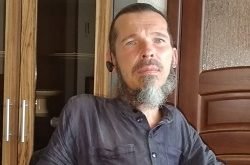
Companies who do not know how to communicate are doomed to violent conflict, disrupting the existing institutions.
Social tensions are often exacerbated by the fact that different social groups do not understand each other, “speak different languages”. The government and society, people and intelligentsia, representatives of different currents, it is important to learn to find the right words for dialogue, which in many cases will save the world. With the correspondent of “Rosbalt” talking to the historians Mikhail Velizhev (Professor, HSE) and Timur Atnashev (senior researcher, Ranepa), dedicated to the study of the history of political languages.
— What do you mean when you say that the country is “no single political language?”
M. V.: — a Common language is a stable set of words, arguments, and expressions, with which the different groups of companies and influential leaders regularly discuss important issues with which people argue and discuss the decisions of the agreement. We are engaged in these issues as historians. But, of course, are watching with interest the current situation
Let’s start with a concrete example: everyone knows what’s going on lately in Arkhangelsk. Rallies against the fact that it suited the landfill for garbage, brought from Moscow. It would seem that we need the leadership of the region to minimize the excitement? Need to talk to people, not to operate a club that can only exacerbate unrest.
However, regional authorities do not have the language to simply tell you about the project and explain how it will be processed garbage. Instead of talking the Governor called the protesters “riffraff”. This language does not involve any dialogue in a situation when you need to persuade or negotiate.
T. A.: — moreover, the Governor in the hearts of so called companions, unwittingly adding fuel to the fire. The conflict intensifies. In this format of communication is just impossible to convince of anything unhappy. The first level of meaningful dialogue — the willingness to explain, to persuade, to better communicate their position to the source. In many cases this may not be sufficient to avoid the escalation of the conflict.
Are you sure about that, what is there to negotiate? And that the Governor can something really be done? Maybe the government just has the setting “do not bend” under pressure from the public?
T. A.: to Negotiate is often a bit easier than it seems, but it is important to start a discussion on real positions. Possible (conditional hypothesis), the polygon is sufficient to move 500 miles away from Arkhangelsk, and the conflict would have been exhausted. And this is the “second level” of the dialogue: not just the explanation of positions, but the negotiations. They do not guarantee a simple solution. But the authorities in this case did not have words for either “first level” or “second”.
M. V.: — We are convinced that exactly who and what he says, pretty much depends. Representatives of the regional authorities are responsible for the tone of voice and the language in which they communicate with people.
Well, in our country there are often mutual lack of understanding on many important issues, even when the interlocutors are not in this issue, “selfish interests”. First of all, it begs the Crimea, Donbass. One says: “We violated international law”. The other answered: “What is “right”? Where our people live or not?!”
M. V.: — that’s right, one language, nationalism, and the other of international law, they contradict.
A. T.: — When talking about sensitive issues, sometimes correctly and not to argue. There is a theory that the current understanding of the role of the state in Western Europe was formed as a result of overcoming religious wars. For civil peace was safer to stop public discussion of religious beliefs between Catholics and Protestants. The dispute about faith led to the physical destruction of the disputants. To avoid the continuation of the massacre, the religious beliefs were removed from the public sphere — in the sphere of the personal. And the state was the guarantor of this division, securing civil peace.
The decision was not to discuss more and better, but the fact that these issues no longer to discuss. So we have: internal conflicts in families and between friends in the discussion of the question of the Crimea led to the fact that people often have to agree to impose a taboo on too hot a topic. This is a good solution. We do not encourage trying everywhere to reach consensus, but more consciously apply the tools of public debate — to learn to use them where appropriate.
— The word “Russian”, for example, some media have used very often, while others do not drink at all.
T. A.: Yes, the conceptual conflict is exacerbated when a team of Yeltsin in the early 1990s, was chosen for the official lexicon of the word “Russian” and “Russian”. This tension is typical for most empires, but this is partly the result of Soviet nationalities policy. “Russian” and “Russian” in pre-revolutionary speech used quite often was synonymous with “Russian”, but today the word choice is politically significant and splits the community.
— Oh, and the word “liberal” has become a dirty word, but under it is certainly different parts of society understand their own.
T. A.: Yes, just recently, our colleague Grigory Yudin did a report about plebiscitary democracy and pointed to its essential kinship with liberal democracy. And each time he told the audience, including us, began to “strain”, just reacting to criticism and reduction of important concepts. And the other part, on the contrary, rejoiced in the most criticized “liberalism”. But no communication is in both cases not occurred.
We have to clarify what Gregory has in mind. It turned out that it was about a specific aspect of “liberal democracy”, that it is possible to criticize in those terms. Clarification of the meaning of words is here quite therapeutic and practical.
M. V.: — In Germany for over 50-60 years the work is focused on the collection and description of the key socio-political concepts of the last half century. When and what is meant by “law”, “democracy”, “civilization”. That’s exactly the case when science can provide benefits to the public discourse.
— And we with it as something not very…
T. A.: — Soviet history there was a brief period when the Supreme Soviet leadership, Gorbachev and some of his team, was of the opinion that it is very good to talk to people and to debate.
It was not just a “rhetorical figure”, and the beliefs of Gorbachev and his associates, in particular — Alexander Yakovlev. Gorbachev team for several years, has turned the publicity in freedom of speech and handed over power from the apparatus of the CPSU to the Congress of people’s deputies, hoping to maintain their lead. By 1990, the political power in the country brought into such debating institution.”
It turned out that it badly worked, it was a poor tool of governance. And many citizens are rightly judged: “look, we have moderational, and the country collapsed. More will not?”.
MV: — And here, for example, a politician who will say that we need “restructuring”. Maybe he will have in mind is not what is meant by the Gorbachev. Inevitably, however, the listener will begin to relate a new restructuring with the old — and perhaps he did not like it. And in the beginning of the reforms of the 1990s, the power conversation with the audience was no longer conducted. He stopped, and this is largely contributed to negative reputation of the reforms themselves.
T. A.: Can we, having studied the experience of perestroika, come to the conclusion that debate and Parliament is a bad thing? Gathers a group of respected people, which more or less was elected fair and square, they try to oblige for the Home, but it turns out that they cannot agree. And the power is restored, when we move from a “deliberative, discursive” model to the authoritarian and centralized hierarchy. And a few years after the collapse of the USSR, Yeltsin forced the recalcitrant Parliament, which fails to agree to disperse.
Easier to do without Parliament? No, the formats in which the conflict is conducted, but meaningful discussion of the government, the society and the country more difficult.
M. V.: — want Parliament To work, you need a lot of practice. The experience of the convocations of the State Duma and restructuring experience shows that it is a very hard working model. But we know from history that companies who do not know how to communicate are doomed to violent conflict, destroying the established institutions and languages.
T. M.: — And to learn to speak, should practice first on small tasks. Therefore, we would not have to start “from Crimea”. When we are talking about difficult, painful subjects, it is best to start from the presumption that, most likely, you and your opponent don’t understand each other. And your conflict is 80% — it is a conflict of misunderstanding. Need to try more often to discuss very sensitive issues — and to create new languages and dialects.
M. V.: — When the many languages, conditional, not 2, but 22, the space for dialogue expanded. If your opponent can’t hear you or react violently to any term, you can try to explain it differently — in a language that is more understandable to him. The opponent always retains the freedom to work with language and to disagree, but this language works better against direct conflict. The question is just the availability and accessibility of such General languages.
So, in the Russian Empire was made to talk about politics in the language of religion. The government explained to the subjects decisions on the language of Orthodox preaching. Now this language is trying unsuccessfully to revive it. Prevailed in the USSR the language of the Marxist-Leninist dogma did not finds adherents in the public space. In 1970-1980s, he was so separated from reality that even the Communist party did not enjoy them. The experience of Russian political culture in these languages is largely forgotten. In the 1990-ies political language had to recreate from scratch.
Until recently, the Russian authorities actively use the language of modern Western liberalism (along, incidentally, with the varieties thug speech): “modernization, democracy, the court.” But after 2011, this set of concepts was non-functional. The people with whom the authorities tried to talk to him, went into opposition. And power was more important to appeal to a different audience.
— And whether your language of the opposition?
M. V.: — While a unified strategy is not visible. By the way, remember Zhirinovsky: he acted as the Creator of a new language. It was the language colloquial, aphoristic, bright, emotional, non-parliamentary. For some segments of the population, he possessed undoubted charm. But how many years Zhirinovsky has in the Parliament? 30 years! It exploits those same verbal gestures, but with less success.
Think about the massive victory of populist parties in Europe: they talk to people in their language. There is a massive rejection of the political language, to be exact — everyday language becomes the language of the policy.
So As soon as there is no conflict, political language is not really needed. But as the conflict intensified, the language will either contribute to its further escalation, or to act as one of the mechanisms, not magic and help not only from the recognition of the views of the other side and resolve the conflict, translating it into the mainstream discussion of positions and work options.
M. V.: — When a significant portion of our contemporaries will understand that it is not necessary disagree with you immediately hit on the head, then maybe our things will be better.
T. A.: — in addition, you should be able to select the formats of the spaces in which it is better to discuss political issues. The British House of Commons is designed so that the two sides sit opposite each other and confront each other. Audience school class creates a space where one teaches and the others listen. The round table stresses the equality of positions and community of interests. But a recent discovery: social networks are not conducive to dialogue, on the contrary, lead to polarization of opinions. Want to discuss controversial subjects and to agree not to discuss it in Facebook and “Vkontakte”.
M. V.: — In any case, modern public communication requires a conscious choice more appropriate to your audience language, tone, and space in which you are talking about. These things are possible and important to plan. In the same Arkhangelsk Governor can invite people into his office, where he will speak from a position of strength, or go for the rally, where he will have a hard time. In Athens this was a special area. Maybe in one of our cities, the mayor or the deputies propose to create a common space. And while we can gather in the large foyer of the house of culture, in a restaurant or even in the bath, where many issues can be solved more easily.
Well, it looks like a simplification…
T. A., M. V.: — Today in Siberia-a small town where the local problem is successfully solved at the gathering. The HOA people learn from mistakes, to negotiate and to trust the other. Pre-revolutionary experience of the Zemstvos showed that many of the issues of education, health, construction of roads or insurance can be solved with the help of interested citizens and local government, including elections, local printing and vowels of the discussion.
We live in a complex and very different society where two groups that are not familiar with each other, have almost no experience between them and are communicated poorly within itself. It is important to start talking with each other without pink glasses and high expectations from the debate. If we do not first learn to clarify our interests aloud in the other language and then to solve at least part of the issues in the negotiations, overripe issues will finally be resolved by force.
We as historians think it is important to study the current Russian political language and modes of publicity. People before us have solved their problems using public rhetoric, letters to Newspapers, debates in courts of assize, at the district Council meetings, in parties, at congresses of people’s deputies and the meetings in the Duma. We hope that the dialogue, debate and negotiation will help to do without a fight, and HOA, and in the regions and in the country.
Interviewed By Leonid Smirnov
© 2019, paradox. All rights reserved.





